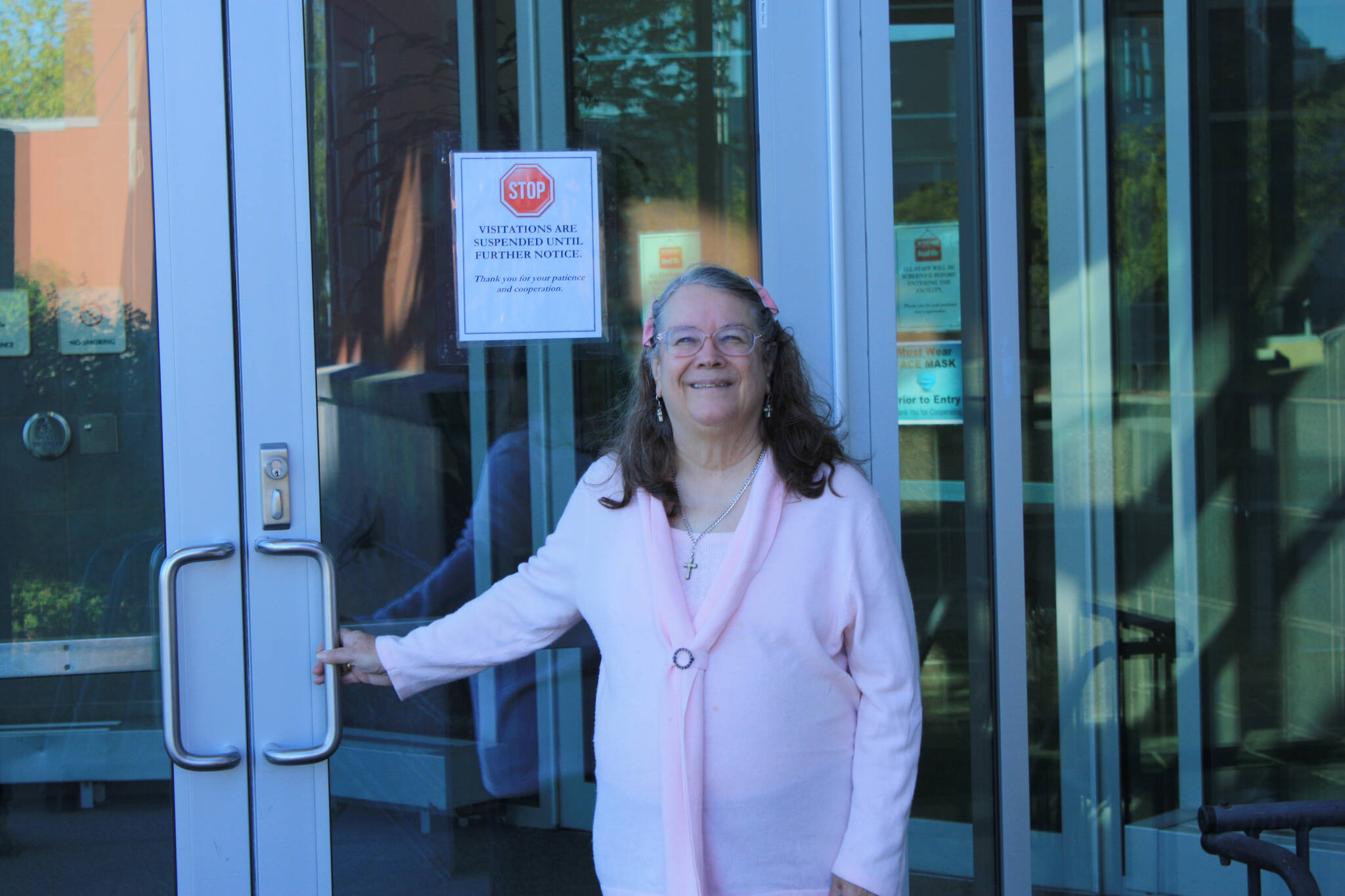By Faith Myers
The split is final. The Department of Health and Social Services will become two state agencies on July 1, 2022. And now it comes down to deciding who gets the fish tank and the corner office. It can’t be easy dividing a state agency with a 3.4 billion annual budget and 3,200 employees.
When Gov. Mike Dunleavy made the official announcement on March 21, that DHSS would be split into two agencies, he made the following statement: “Reorganization will create an environment for innovation and greater responsiveness.”
In my opinion, DHSS could be divided into 10 entities, but without a clear new set of goals and oversight from the state Legislature, DHSS will not be any more able to protect and provide quality of care for disabled psychiatric patients than they are now.
There are approximately 10,000 acute care psychiatric patients each year that rotate in and out of locked psychiatric facilities or units for a forced evaluation or treatment. DHSS does not conduct regular independent patient exit polls or keep statistics of psychiatric patient complaints, injuries or traumatic events statewide. It is a legitimate question: “Why spend millions to reorganize DHSS when the state does not even know basic information about the clients DHSS is required to help?”
Over the last 10 years, a successful lawsuit was filed against API’s policies and practices and by extension against the state and DHSS. Add onto that, the negative reports concerning patient care at API from the state Ombudsman, Medicaid/ Medicare, Disability Law Center and the Joint Commission. It is not a very good report card for a state psychiatric hospital. Psychiatric patients have faced a higher than necessary chance of being mistreated over a 10-year period and that is evidence of a dysfunctional system.
Providers of psychiatric services, and DHSS is a provider, have adopted a system where very few psychiatric patient complaints can make it past the walls of a psychiatric institution. I am talking about complaints such as sexual and physical abuse allegations and denial of rights. As of now, any complaint by a patient involving a hospital staff member is considered an internal matter and, for the most part, patients are left out of the process without an independent review of the patient’s complaint or adequate protection.
The Alaska Psychiatric Institute opened its doors in 1962. Through the many iterations of the hospital, API has been managed by the Department of Health and Social Services. The sheer size of DHSS and inadequate legislative safeguards left open the door for management at API to become stagnant. In 2019, the private company, Wellpath Recovery Solutions had to be contracted to upgrade policies and practices at API to keep the state from losing its certification for the 80-bed psychiatric hospital.
In 1962, the Legislature gave a select number of private psychiatric facilities from Ketchikan to Fairbanks the authority to detain and treat disabled psychiatric patients. It was not until almost 20 years later, in 1981, that the Legislature started granting personal rights to psychiatric patients locked in psychiatric facilities. As an example, going outdoors, receiving mail and being free from corporal punishment. It was not until 1992 that patients were given a right by state law to file a grievance. There has never been an independent review to determine if any of the current laws are properly protecting patients.
During my time as a mental health advocate, governors have come and gone, starting with Sarah Palin. Through multiple administrations, I had the same urgent message for DHSS: Reduce the unnecessary trauma that people face during treatment inside locked psychiatric facilities. And keep and share statistics of the number and type of psychiatric patient injuries and complaints and the traumatic events experienced by patients.
As a former patient that has been locked in a psychiatric facility, it is my experience that psychiatric patients are not protected. Creating new programs for disabled psychiatric patients or dividing DHSS into two entities will not in itself eliminate the mistreatment of psychiatric patients. There must be sufficient pressure applied to DHSS through new laws and regulations to bring about a systematic culture change at a state level in how disabled psychiatric patients are viewed, treated and protected.
• Faith J. Myers is the author of the book, “Going Crazy in Alaska: A History of Alaska’s Treatment of Psychiatric Patients.” Columns, My Turns and Letters to the Editor represent the view of the author, not the view of the Juneau Empire. Have something to say? Here’s how to submit a My Turn or letter.

